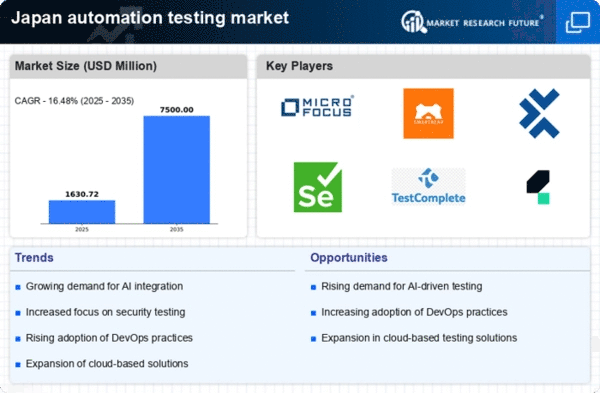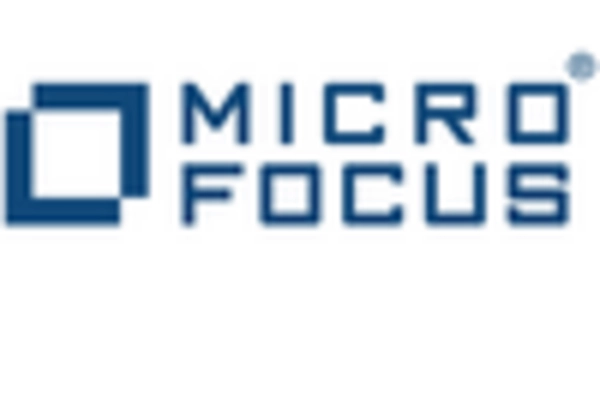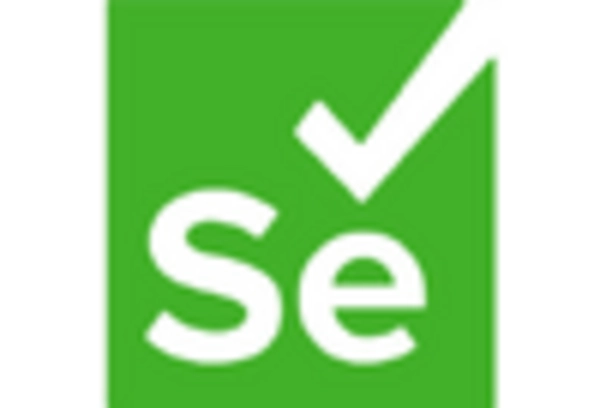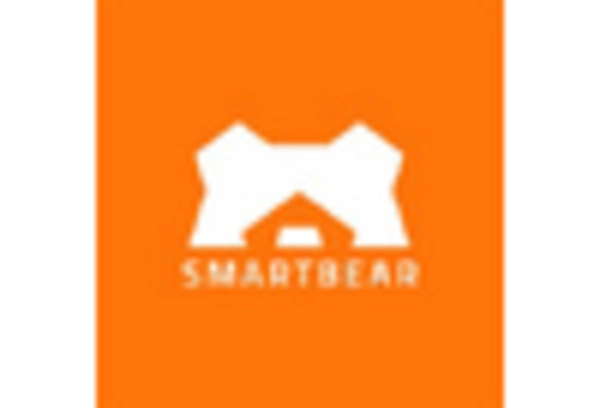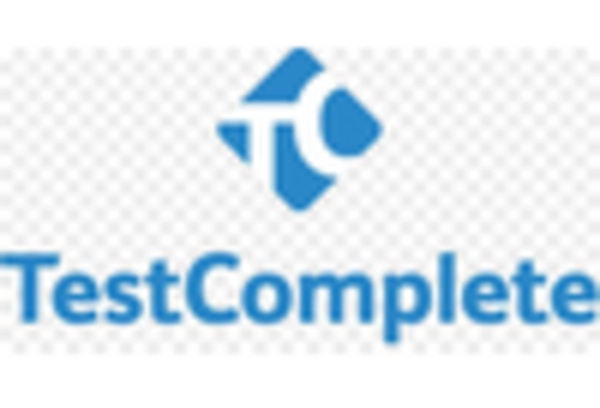Increased Focus on Cybersecurity
As cyber threats continue to evolve, the automation testing market in Japan is witnessing a heightened focus on cybersecurity. Organizations are prioritizing the security of their software applications, leading to an increased demand for automated security testing solutions. In 2025, it is projected that the cybersecurity testing segment will account for approximately 25% of the overall automation testing market. This shift reflects a broader trend towards proactive security measures, as businesses aim to protect sensitive data and maintain customer trust. The automation testing market is thus adapting to these needs by offering specialized tools that address security vulnerabilities, ensuring that software products are not only functional but also secure.
Regulatory Compliance and Standards
The automation testing market in Japan is also influenced by the need for regulatory compliance and adherence to industry standards. Various sectors, including finance and healthcare, are subject to stringent regulations that mandate thorough testing of software applications. In 2025, it is anticipated that compliance-related testing will represent a significant portion of the automation testing market, as organizations strive to meet legal and industry requirements. This trend highlights the importance of automated testing solutions that can efficiently validate compliance, thereby reducing the risk of penalties and enhancing operational integrity. The automation testing market is thus positioned to grow as businesses seek to align their testing processes with regulatory expectations.
Adoption of Agile and DevOps Methodologies
The shift towards Agile and DevOps methodologies is significantly influencing the automation testing market in Japan. Organizations are increasingly adopting these frameworks to enhance collaboration and accelerate software development cycles. In 2025, it is estimated that over 60% of software development teams in Japan will implement Agile practices, necessitating the integration of automation testing to keep pace with rapid development. This trend indicates a growing recognition of the importance of continuous testing within the software development lifecycle. Consequently, the automation testing market is likely to see increased investment in tools that facilitate seamless integration with Agile and DevOps processes, thereby improving overall productivity and software quality.
Rising Demand for Software Quality Assurance
The automation testing market in Japan is experiencing a notable surge in demand for software quality assurance. As businesses increasingly rely on software applications, the need for robust testing solutions becomes paramount. In 2025, the market is projected to grow at a CAGR of approximately 15%, driven by the necessity for high-quality software products. Companies are investing in automation testing tools to enhance efficiency and reduce time-to-market. This trend is particularly evident in sectors such as finance and healthcare, where software reliability is critical. The automation testing market is thus positioned to benefit from this growing emphasis on quality assurance, as organizations seek to mitigate risks associated with software failures.
Growth of E-commerce and Digital Transformation
The rapid growth of e-commerce and digital transformation initiatives in Japan is driving the automation testing market. As businesses increasingly move online, the demand for reliable and efficient software solutions has surged. In 2025, the e-commerce sector is expected to contribute significantly to the automation testing market, with an estimated growth rate of 20%. This trend underscores the necessity for comprehensive testing strategies to ensure seamless user experiences and operational efficiency. The automation testing market is responding by providing tailored solutions that cater to the unique challenges faced by e-commerce platforms, thereby enhancing their competitiveness in a digital-first landscape.


